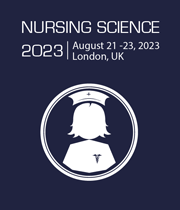Title : Microorganisms in ready-to-use laryngoscopes can be caused by multidrug-resistant infections
Abstract:
Background: Antimicrobial resistance is currently one of the biggest global health problems, especially in the intra-hospital environment. To reduce the risk of cross-infection, controlled medical devices will be disinfected according to their classification of use. Based on Spaulding's classification, the blade is considered a semi-critical item, since it comes into contact with the patient's mucosa, and the handle as a non-critical item.
Objective: To analyze the presence of microorganisms in ready-to-use laryngoscopes in a public teaching hospital in Brazil.
Method: Slides were immersed in sterile distilled water, followed by sonication and dwell to loosen particles. The microbiological wash was filtered through a 0.45 µm membrane that was placed on blood agar. To collect the cables, a friction swab was used, moistened in sterile water and seeded on a blood agar plate by exhaustion. Plates were incubated at 35ºC (± 2ºC) for up to five days. The samples were observed from a qualitative point of view and the identification of genus and species by mass spectrometry remained. Descriptive analysis, association with chi-square test and Fisher's exact test, and a Poisson regression model were performed. The results were considered approved for the prevalence ratio, with a significance level of 5%.
Results: A total of 158 slides and 45 handles were collected. There was microbial growth in 59.49% and 64.44% of the samples, respectively, with isolated fungi and potentially pathogenic bacteria from the ESKAPE group (Enterococcus faecium, Staphylococcus aureus, Klebsiella pneumoniae, Acinetobacter baumannii, Pseudomonas aeruginosa and Enterobacter sp), producers of extended-spectrum β-lactamase and carbapenemases. The units that adopted the highest microbial growth on the slides were the wards (82.76%) and the adult and child intensive care units (80.49%), with a 4x greater chance of contamination in other sectors (prevalence ratio of 4. 18-4.48, p<0.0001).
Conclusion: Nursing plays a fundamental role in patient care strategies and in actions to combat antimicrobial resistance within the multidisciplinary team. Infection caused by medical devices favors the transmission of microorganisms and can be caused by multidrug-resistant infections.


